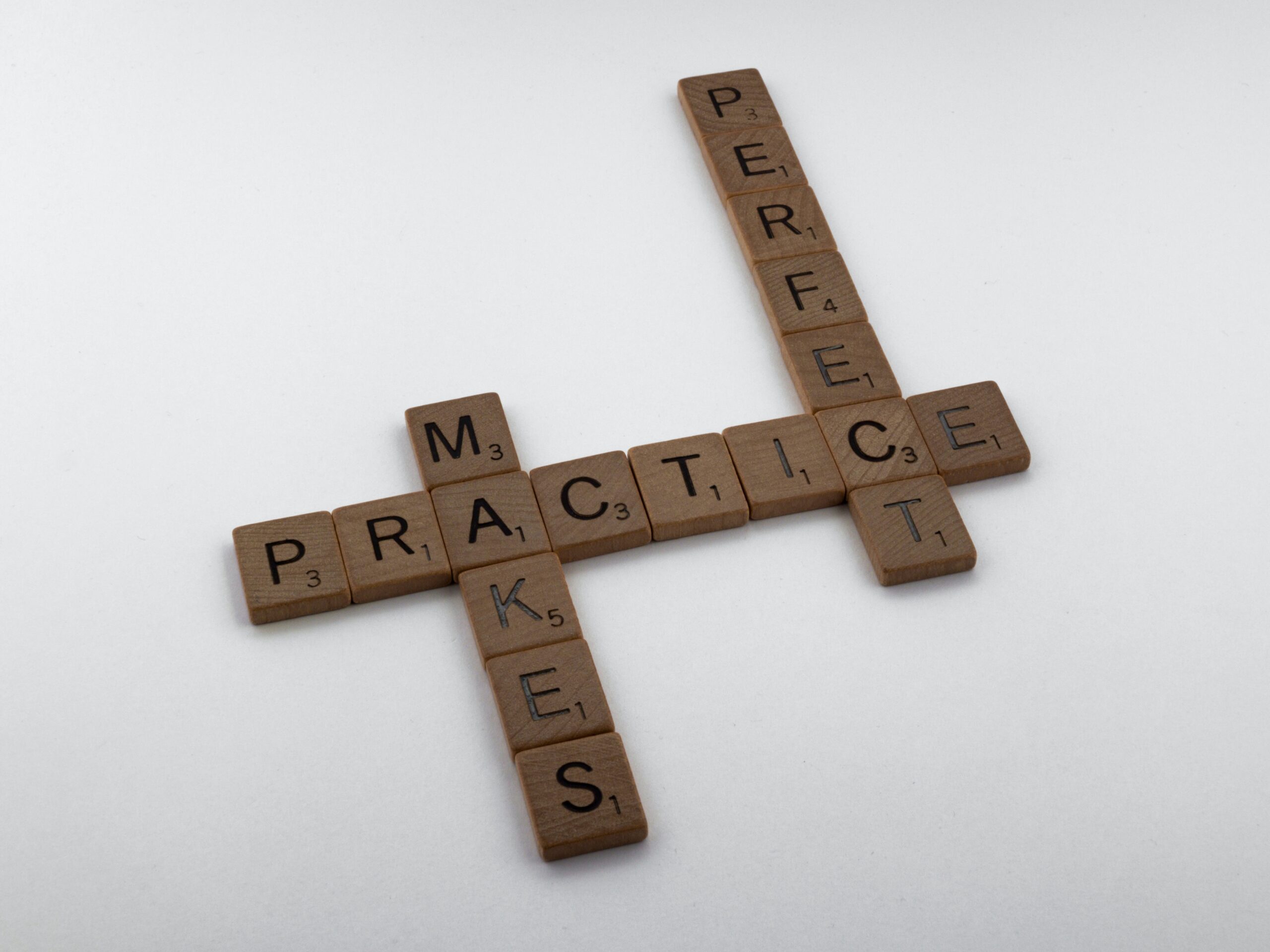
Spirituality, Well Being
What it really means to rest (hint: it’s not about fancy self-care)
We all know theoretically we need to get plenty of rest. Self-care is a big theme these days, and there are plenty of reminders about how much sleep we need, exercise routines we could be doing, foods we should be eating and an overarching meme that we need to be kinder to ourselves, whatever that really means. And then there’s reality, which often bears no resemblance. I’ve been thinking about this quite a bit the last week, as a chronic condition I have has flared up again, often triggered in the past due to stress and lack of sleep. Interestingly our bodies have a way of sending us messages that we often try to ignore. Because of this flare up, it’s prompted me to rest. I toned down my activities; I’m spending most evenings in, trying to eat as healthy as I can, getting my yoga class in every day, making sure I head to bed early. I’ve eased up on the work front, being careful not to commit to too many things. I let go of being overly responsive on email. On the surface, I look rested. My skin even has a more youthful glow! But on the inside, not so much. Our minds will sabotage our restfulness On the inside I’m plagued with worries. Worried about how long this flare-up will last, worried that I’m not doing enough ongoing business development and marketing. Worried that I’m about to rebrand my career coaching practice as “burnout coaching” and worried that I won’t be able to attract new clients that way. Worried about my friendships and my key relationships in life, am I putting in enough effort? I cleared my mind of work finally and then I started ruminating about a specific friend and how I had texted her a few times and she hadn’t responded. Maybe she’s mad at me? I haven’t been super communicative recently and I haven’t reached out all that much. Maybe this is her passive aggressive way of sending me a message? Maybe I should call? But then why should I, that’s codependent behavior. I’m tired of having to make the effort. She should text back… I started to recognize that in the absence of work problems, my mind had fixated on this friend in the obsessive, compulsive way the mind often does so that it has something to do. I willed it to stop. And then I started noticing my office library needed to be redecorated and found myself aimlessly scrolling on amazon, looking for new rugs. Nothing looked good. I’ve now sent three back just in case you were wondering and I’m no closer to achieving that carefree boho look that I crave. We have to learn to receive rest And then I realized something very important about rest. It’s not something we necessarily achieve through physical means, although good practices like getting the proper amount of sleep are helpful in many respects. It’s something we must allow ourselves to receive, to truly
July 31, 2024
|
5.6 min read

Emotional Intelligence, Mindfulness, Well Being
Pain is Inevitable, Suffering is Optional
The title of today’s blog is a quote that has been attributed to many notable talking heads, including the Dali Lama. And it’s the events of last week that really brought it home for me, as in the wee hours of Friday morning, when I should have been peacefully sleeping, I was awakened by a massive migraine attack, complete with nausea and all the fun things a migraine can throw one’s way. The bottom line – it was an unrelenting 24 hours of hell. And not just on the physical front. Especially not only on the physical front. In-between unsteady trips to the bathroom my mind was awash with anxiety. What’s going to happen to all my client appointments tomorrow? Cancelled. What’s going to happen to my blog I need to finish and get out by the end of the week? Not happening. What if this wrecks my business? Clients are going to think I’m unreliable. How am I supposed to plan and manage my engagements when something like this can strike without a moment’s notice? What if this puts undue stain on my marriage? Me being up keeps him up. How much can my husband really take? It left me drained, emotionally and physically, but also quite reflective. Because at some point, in the midst of all the strife, strain and obsessive worrying, I realized I had a choice. Not a choice of whether I get to have migraines – unfortunately I don’t have that kind of power! But a choice on what perspective I get to take on the situation. And it’s the perspective I take that leads directly to how much suffering I must endure. What does it mean to suffer? To break this down, let’s think about what suffering means. It’s worth noodling on this considering the Buddha said many a time that “life is suffering.” On the surface of it, not the most upbeat way to view our journey around planet earth. But it depends on how you look at it. I’ve often defined suffering as “resistance to what is.” Resistance creates pressure. And pressure creates stress. And so, when folks enter my virtual office these days and say things like they’re burned out and stressed out, I believe them. They are. But I also say the solution lies not so much in having more time in the day to address a never-ending list of to-dos, but more in the way we manage our energy relative to the problems life throws our way. Because unfortunately, like it or not, life will throw us problems. That’s the one thing we can always count on. The real problem is we think we shouldn’t have problems. And therefore, we spend a lot of time resisting said problems, which creates a lot of suffering. Recognize any of these? If only I’d had a better childhood, then I wouldn’t be navigating all the difficulty I am right now. They were wrong to fire me. If they had really valued me,
February 26, 2024
|
5.5 min read

Emotional Intelligence, Leadership, Spirituality, Well Being
An antidote for impostor syndrome – but it’s not quite what you think
Impostor syndrome is one of those interesting and universal things – in my opinion we all suffer from it. It shows up in many ways – failure to try new things because we’re afraid we’re going to fail, we don’t speak up in a meeting and so we never get credit for the idea, we don’t ask for the promotion, we don’t ask for help, we avoid asking for feedback or we over defend if we do get it, we overwork something to death because it’s not quite perfect yet, we fail to advocate for ourselves… We all suffer silently and repeat the same patterns I could go on and on. And we’re somewhat aware of the cost of this, as it makes life a lot more painful to live. We KNOW in our heads that we suffer from impostor syndrome. We might read books on it, we’ve taken the online quiz, maybe even our therapist told us. So we look for new techniques on how to solve this problem, we look to apply a new perspective and think carefully about what the morning affirmation needs to say (that is, if we remember to do it.). Maybe we practice meditation hoping and praying it will disappear, or we call our doctor and ask for a prescription for the daily anxiety we’re battling and just can’t seem to shake no matter how successful we are, no matter how many things get ticked off the to do list. Because there’s always more. We practice self-care because that’s the solution, right? A massage, getting the nails done, we tell ourselves that we need to be kinder to ourselves. But deep down we KNOW we don’t deserve it. Our nails look great and inside we’re still a mess. And we go about our business of repeating the same cycles, the same patterns of suffering, because obviously there’s no real fix to this, otherwise somebody would have figured it out by now. Impostor syndrome can’t be solved by the same thinking that creates it There is a fix. The problem is we’re often looking in the wrong place. Impostor syndrome can’t be solved by the same problem that creates it. It’s not a thinking problem. It can’t be solved in the head. It can only be solved in the heart. The heart – an interesting concept for many of us to take in. It’s a place many of us aren’t super familiar with and frankly don’t have much experience with. And yet we all have one. How does this happen and how can this be? Because adulthood often entails learning how not to feel things. Learning how to hide things. Learning how to cope with the difficulties of life, and feelings will just get in the way and get us in trouble. We learn early on as children that feelings are often scary and if we express them, we’ll probably get punished, or worse. We learn how to not take emotions to work because emotional
October 17, 2023
|
5.7 min read

Emotional Intelligence, Leadership
The Scary Side of Success
One of the practices I often have leadership trainees do at the beginning of a session is to check in with how they’re feeling. I use a wheel of feelings that has 70-80 different emotions listed. And you may be wondering why – what would be the point of taking up valuable time to talk about feelings, especially when there is so much content to cover? Just get on with it! We often ignore emotion The problem is just that. We often ignore what we’re feeling, push it down, disregard it and just get on with it. But the feeling still comes with us. And what we don’t acknowledge often comes out sideways. Let’s say the crap hits the fan because of a recurring problem with a customer. A problem that you told them was fixed. Now you’re in a bad mood because you’re going to have to eat crow with your stakeholder and then you find yourself in a difficult conversation with a direct report to address the issue. You get triggered and can’t maintain your cool. Now you’ve alienated your direct report, and the customer is mad, and the problem still isn’t fixed. Doh! Or perhaps the feeling isn’t anger but stress and pressure. I’ll use myself as an example for this one. Over the past few months, I’ve been sicker than I’ve been in ages. It’s been extremely stressful coping with that while trying to keep all the plates in the air spinning, and I’ve been worried about my body’s ability to bounce back – something that has never troubled me in the past. I’ve been carrying so much heaviness in my chest and feeling utterly exhausted. I’ve found myself sighing out loud multiple times a day. And I kept ignoring it because I had too many things to do. Foolishly, I was ignoring my own advice. I looked at the feelings wheel the other day and decided to finally lean into it, rather than push the stress and overwhelm to the side. We push stress aside at our peril I’ve often been told that I’m very good at maintaining a façade. That I appear to have everything under control, I appear super calm on the surface, and I never need to ask for help. But looks can be deceiving. I started writing down a list of all the things that have been stressing me out over the last year – and it ended up being a very long list. A lot of it related to work, some to family, some to friends. And a lot of the work-related things were positive. More clients than I could handle, different types of work, expanded scopes, more interdependencies, expanded projects. But even the good stuff can bring stress. And yet I didn’t allow myself to acknowledge it, because the mindset of a coach should be that this is all so wonderful, and I should be positive all the time. I should see everything as an opportunity and never have
October 6, 2023
|
5.1 min read

Career Coaching, Leadership
Sorry, there is no perfect career. You still have to do your inner work.
There’s a common misconception floating around currently where passion and purpose is concerned and the whole decision of career path. “When I find my passion, my job won’t feel like work.” “When I’m following my purpose, I’ll be fearless. I’ll know I’ve found the right career path. The things that used to scare me just won’t anymore.” Don’t get me wrong, tapping into passion and purpose is great. A lot of my career coaching and leadership coaching work is geared at helping folks recognize these things for themselves and connect to them in a meaningful way. But as far as the above statements are concerned – I hate to burst your bubble, but they just aren’t true. I’ll give you an example. I love teaching, I love facilitating. It’s when I’ve had probably the most moments in actual flow – those moments you lose yourself, time passes and you’re not watching the clock. These are magical moments, as you’re completely present, mindful and 100% engaged in what you’re doing. I often suggest coaching clients think about times when they have entered this state as a way of connecting with activities and topics that bring joy. The more you notice a correlation between flow moments and a certain activity, it may be a good career path option to explore. There is no career path that will deliver constant flow But that doesn’t mean shifting your focus to that activity or career path will automatically bring you into an instant state of flow 100% of the time. The human experience is way more complicated than that. I’ve also had a lot of scary moments as a trainer and a facilitator. Difficult participants, difficult clients, difficult colleagues. Logistical challenges where a room hasn’t been ready, the materials failed to show up or a flash flood was suddenly headed my way with a room full of participants and no idea what to do. Add to this my personal favorite – incomplete or incoherent course content that’s only been delivered to me a day or so before a program and I’m expected to pull off a miracle with no time to prepare. Before every delivery I’m a little bit nervous. There are often insecurities that come up – What if I don’t know enough? What if I get asked a question I don’t know the answer to and look stupid in front of participants? What if I can’t handle the challenging dynamics in the room? Things are often coming at a facilitator a million miles a minute. What if I miss something? What if the feedback is negative from the participants and they express it was a waste of their time? What if this team or coachee doesn’t get the outcome they’re looking for? I can’t recall a single delivery where I haven’t felt at least a twinge of anxiety in the run up to a session starting. And yet I do it anyway. Day in and day out, over and over again. I show
May 17, 2023
|
6.2 min read

Emotional Intelligence, Well Being
How to Feel Your Feelings – The Simple Thing We Never Learn
Over the years I’ve heard the phrase, “You’ve got to feel your feelings,” so many times I could choke. It’s a popular phrase now, way extended beyond mere psychology and coaching circles. It’s almost as common as “living your best authentic life,” which also elicits an eye roll from me. How we hide from our feelings Feeling your feelings sounds simple, but most of us have no real understanding of how to do it. And the guidance out there on this front is hazy at best. A lot of this has to do with the fact that we don’t often have good role models on this front. I’m reminded of that 70’s musical classic, “Don’t cry out loud.” Words, unfortunately, that many of us have decided to live by. Furthermore, most of us think we are feeling the difficult emotions when they come up, but we’re really not. We’re fooling ourselves. This is because when difficult emotions do arise, the fight or fight mechanism gets triggered, our amygdala gets hijacked and rather than do the hard work of leaning into the actual feeling, we lean unconsciously instead into a coping mechanism, which could look something like one of the following options: So, what to do instead? The answer to how to feel your feelings lies is understanding what your default tendencies are and making a conscious choice to do something different. 2. Say yes to the emotion – Pat Rodegast (representing the teachings of Emmanuel) writes, “So walk with your heaviness, saying yes. Yes to the sadness, yes to the whispered longing. Yes to the fear. Love means setting aside walls, fences, and unlocking doors, and saying yes … one can be in paradise by simply saying yes to this moment.” The instant we agree to feel fear or vulnerability, greed or agitation, we are holding our life with an unconditionally friendly heart. We are accepting the present moment as it is. 3. Connect with the feeling in your body – Is it nervousness in the pit of your stomach? Is it anger and frustration in your forehead or shoulders? Is it sadness and grief that hangs heavy in your heart? Connect with the feeling in your body, lean into the experience of it and breathe deeply as you allow yourself to experience it. I find that once I’ve connected at this level the experience of the emotion typically passes rather quickly and it feels almost as if it’s moving through my body. 4. Show yourself loving compassion – I find it’s sometimes helpful to whisper out loud, “I’m feeling scared right now and it’s okay. I’m feeling resentful right now and it’s okay.” The trick here is to acknowledge what’s happening with loving compassion towards yourself, not to make the emotion go away. The only way it will go away is once you’ve accepted it fully and embrace the sensation. Coaching questions for thought: Shelley Pernot is a leadership coach who is passionate about helping her clients discover their
April 28, 2023
|
5 min read
resilience
Shelley Pernot, otherwise known as the Irreverent Guru of Mindfulness, muses on life, leadership and everything in between. Your one stop shop for career tips, leadership tips and daily inspiration!

It was a privilege to work with Shelley as my leadership coach! The process was structured and yet flexible enough to meet needs as they arose. Shelley helped me to grow, learn more about myself, and to really achieve what I set out to accomplish. We worked on planning, navigating a promotion successfully, and so much more! I experienced many successes as a result of working with Shelley, she has great resources, knowledge, and really helps with setting the foundation to this coaching work. She won’t let you down!
Stacy Campos
Regional Coordinator
Having the opportunity to have Shelley as my Leadership Coach could not have come at a better time in my career. I was recently promoted to CFO and was new to the Senior Management Team. Shelley helped me navigate joining the team as well as helped me to determine who I wanted to be as a leader. The Leadership Circle Profile helped our team to discover our blinds spots and to be able to understand each other better. Working with Shelley not only has affected my professional life in a positive way, but also my personal life. She helped me take leaps and has given me the resources to continue this journey of self-improvement. If you’re looking to find more about yourself and how you can be the best version of yourself, I highly recommend working with Shelley.
Kristen Spedale
CFO
I have been working with Shelley for the past 2 years on my leadership development journey. What I thought would be a straight line, I soon learned with Shelley’s guidance, was a winding path with several ups and downs along the way. Shelley supported me as I took a deep dive into my professional and personal history and learned how it affects my approach and my perceptions. She helped me to slow down and recognize certain behaviors and understand that I can pivot in the moment or try again next time. Ultimately, my work with Shelley turned out to be so much more than what I expected. Her approach to coaching was exactly what I needed.
Nicole Naassan
Senior Vice President, Consulting
I’ve learned more about leadership in the past six months working with Shelley than I have in my 10+ year career. She is an incredible coach with many tools in her toolbox. The guidance and mentorship I’ve received from Shelley has been life-changing. She will challenge your limiting beliefs and inspire new ways of thinking.
Margaret Soltis
Creative Director
I highly recommend Shelley if you need a coach, thought partner, and guide as you consider the next steps in your career. She provides practical tools and advice to help launch your career exploration, but most importantly, she is an expert at helping you cut through the noise of your limiting beliefs. At the end of our time together, I had a much clearer vision of what I wanted in my life and a plan to make it happen. My only regret is that I didn’t find her sooner!
Elizabeth Magnus
My career coaching sessions with Shelley have brought me back to living. It’s been contagious, spreading throughout my personal and professional life. I now have the building blocks I need to continue setting healthy boundaries, the freedom to show up as my authentic self, and an adaption of a growth mindset that has allowed me to make bold decisions and try new things. I’ve discovered that there’s always another way and how to eradicate barriers that lead to tunnel vision. These sessions with Shelley have been a great gift and have given me the momentum I need to continue the journey to be my best self.
Teasha Houston
Art Director
It is amazing to think where I was only 10 months ago when I first started working with Shelley and where I am now. Not only professionally but mentally and emotionally. Shelley helped me navigate out of an unhealthy work environment by challenging me and asking me those tough questions we never seem to ask ourselves. What are the values of a true leader? How do those values align with my own? Shelley challenging me and guiding me through some of those tough questions is what led to my epiphany and me having the courage and confidence to leave an environment that threatened my well-being. She taught me how to become more self-aware and self-compassionate. Reminded me to be kind even when the world would understand if I did otherwise. And the biggest one for me, shutting down that crazy inner voice (we all have it!) and replacing it with being present. Shelley has armed me with tools that I will carry with me for a lifetime. Tools that will help me to continue to grow and learn. Life can be hard but working with someone like Shelley does make it easier. She will help you navigate the good and the bad and you’ll learn so much about yourself in the process.
Michele Feria
Director of Marketing
First of all I would like to say that I would recommend Shelley to anyone needing career guidance. As my counselor Shelley helped me transition my career from bartending to Tech Sales which was a difficult and scary transition for me. From the start Shelley was fantastic. Initially I had no idea of which direction I wanted my career to go, I just knew I wanted it to go somewhere else. Shelley was so kind and patient as she helped me figure this out, and gave me a step by step guide on how to explore my options and make an educated decision. She also helped me assess my skill set which played a large part in directing my energy. I landed a great job within days of my final session with Shelley, and now I’m month 3 I am absolutely loving it and doing very well. It was the perfect job for me and Shelley was the one that got me there. Working with Shelley was one of the best decisions I have ever made, she literally changed my life and I am so much happier for it.
Russell Boxer
Account Executive
